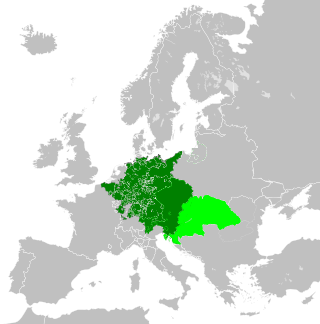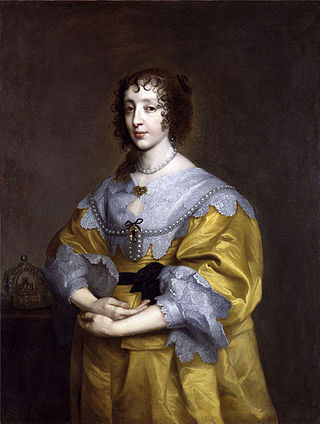See also
- Rike Kumler Co., commonly known as Rike's, a former American department store in Dayton, Ohio
- Reich , spelled rike in Swedish and modern Norwegian, rige in Danish and riik in Estonian; analogous to the English word "realm"
Rike or Ryke is a given name and a surname. It may refer to:
Magnus, meaning "Great" in Latin, was used as cognomen of Gnaeus Pompeius Magnus in the first century BC. The best-known use of the name during the Roman Empire is for the fourth-century Western Roman Emperor Magnus Maximus. The name gained wider popularity in the Middle Ages among various European peoples and their royal houses, being introduced to them upon being converted to the Latin-speaking Catholic Christianity. This was especially the case with Scandinavian royalty and nobility.

Reich is a German word whose meaning is analogous to the English word "realm"; this is not to be confused with the German adjective "reich" which means "rich". The terms Kaiserreich and Königreich are respectively used in German in reference to empires and kingdoms. The Cambridge Advanced Learner's Dictionary indicates that in English usage, the term "Third Reich" refers to "Germany during the period of Nazi control from 1933 to 1945".

Valle is a municipality in Agder county, Norway. It is located in the traditional district of Setesdal. The administrative centre of the municipality is the village of Valle. Other villages in Valle include Besteland, Brokke, Homme, Hovet, Rygnestad, Rysstad, and Uppstad.
Olaf or Olav is a Dutch, Polish, Scandinavian and German given name. It is presumably of Proto-Norse origin, reconstructed as *Anu-laibaz, from anu "ancestor, grand-father" and laibaz "heirloom, descendant". Old English forms are attested as Ǣlāf, Anlāf. The corresponding Old Novgorod dialect form is Uleb. A later English form of the name is Olave.
Lorentz is a name derived from the Roman surname, Laurentius, which means "from Laurentum". It is the German form of Laurence. Notable people with the name include:
Festung is a generic German word for a fortress. Although it is not in common usage in English, it is used in a number of historical contexts involving German speakers:
Ryke Geerd Hamer was a German former physician and the originator of Germanic New Medicine (GNM), also formerly known as German New Medicine and New Medicine, a system of pseudo-medicine that purports to be able to cure cancer. The Swiss Cancer League described Hamer's approach as "dangerous, especially as it lulls the patients into a false sense of security, so that they are deprived of other effective treatments."

Erik the Red's Land was the name given by Norwegians to an area on the coast of eastern Greenland occupied by Norway in the early 1930s. It was named after Erik the Red, the founder of the first Norse or Viking settlements in Greenland in the 10th century. The Permanent Court of International Justice ruled against Norway in 1933, and the country subsequently abandoned its claims.
Karsten or Carsten is a both a given name and a surname. It is believed to be either derived from a Low German form of Christian, or "man from karst". Notable persons with the name include:
Legenden om Ljusets rike is a set of fantasy novels by Norwegian-Swedish writer Margit Sandemo. It includes twenty titles. This set of novels can be read in Norwegian, Swedish, Icelandic and Polish. Margit Sandemo says that she wrote this series of novels because she wanted, like many other fiction writers, to portray her own view about an idealized world. Another reason to write Legenden om Ljusets rike was for the character called Marco who Sandemo created in the end of The Legend of the Ice People. She was so fond of him that she wanted to write more about Marco in the following series of novels. Those ideas took shape in her mind when she had written around half of Häxmästaren.
Hanne is a feminine given name. Notable people with the name include:

Herman Wildenvey, born Herman Theodor Portaas, was one of the most prominent Norwegian poets of the twentieth century. During his lifetime he published 44 books of his own poetry, in addition to translations of William Shakespeare, Ernest Hemingway, and Heinrich Heine. He was married to the novelist Gisken Wildenvey.
Ryke Yseøyane is a group of several small islands off the east coast of the island of Edgeøya in Svalbard, Norway. The islands are named after the Dutch whaler Ryke Yse of Vlieland, who discovered them about 1640–1645. The group was first marked by Hendrick Doncker, of Amsterdam, in 1663. Two Norwegian polar bear hunters wintered on Ryke Yseøyane for two subsequent winters in 1967–1969. During the second winter, one of them was lost in drifting ice. They are part of the Southeast Svalbard Nature Reserve.

Henrietta is a feminine given name, derived from the male name Henry. The name is an English version of the French Henriette, a female form of Henri. A short version of the name is Harriet, which was considered the "spoken form" of Henrietta, much as Harry was considered the "spoken form" of Henry in medieval England.
Siegfried is a German-language male given name, composed from the Germanic elements sig "victory" and frithu "protection, peace". The German name has the Old Norse cognate Sigfriðr, Sigfrøðr, which gives rise to Swedish Sigfrid, Danish/Norwegian Sigfred. In Norway, Sigfrid is given as a feminine name.

Frederica is a feminine given name meaning "peaceful ruler". It is closely related to the masculine name Frederick, of Germanic origin. Its meaning is derived from the Germanic word elements frid, or peace, and ric, meaning "ruler" or "power".
Thorsten is a Scandinavian given name. The Old Norse name was Þórsteinn. It is a compound of the theonym Þór (Thor) and steinn "stone", which became Thor and sten in Old Danish and Old Swedish.
Boomgaarden is a surname. Notable people with the surname include:
Anthon is a Danish, Finnish, German, Norwegian and Swedish masculine given name that is used in Greenland, Finland, Norway, Sweden, Republic of Karelia, Estonia, Namibia, Denmark, Germany, Switzerland and Austria. Notable people with this name include the following:
Anarchism in Norway first emerged in the 1870s. Some of the first to call themselves anarchists in Norway were Arne Garborg and Ivar Mortensson-Egnund. They ran the radical target magazine Fedraheimen which came out 1877–91. Gradually the magazine became more and more anarchist-oriented, and towards the end of its life it had the subtitle Anarchist-Communist Body. The anarchist author Hans Jæger published the book "The Bible of Anarchy" in 1906, and in recent times Jens Bjørneboe has been a spokesman for anarchism – among other things in the book "Police and anarchy".